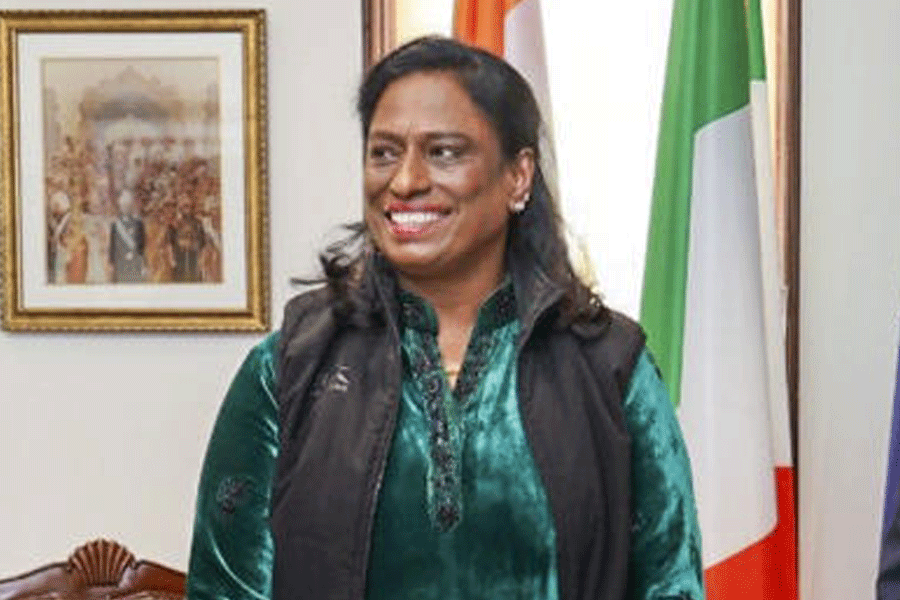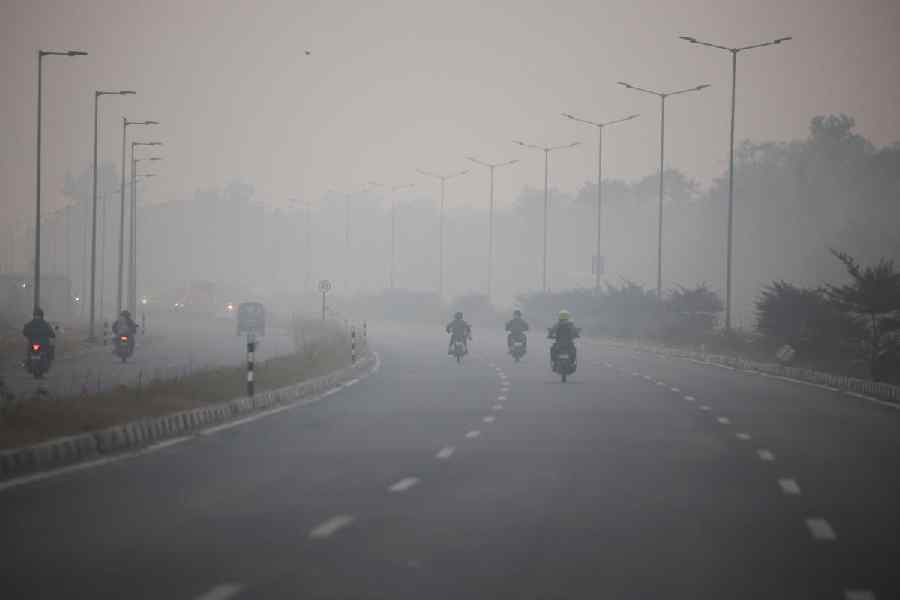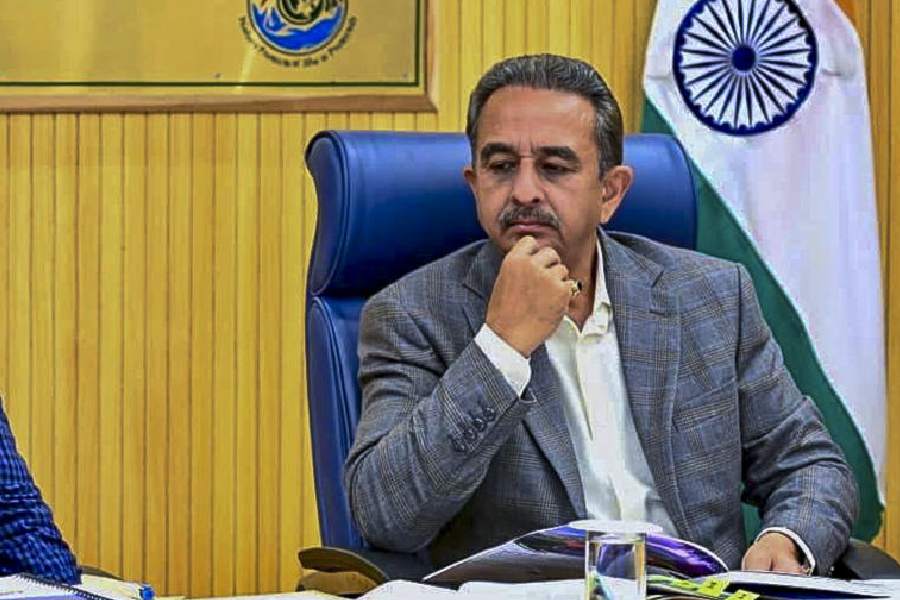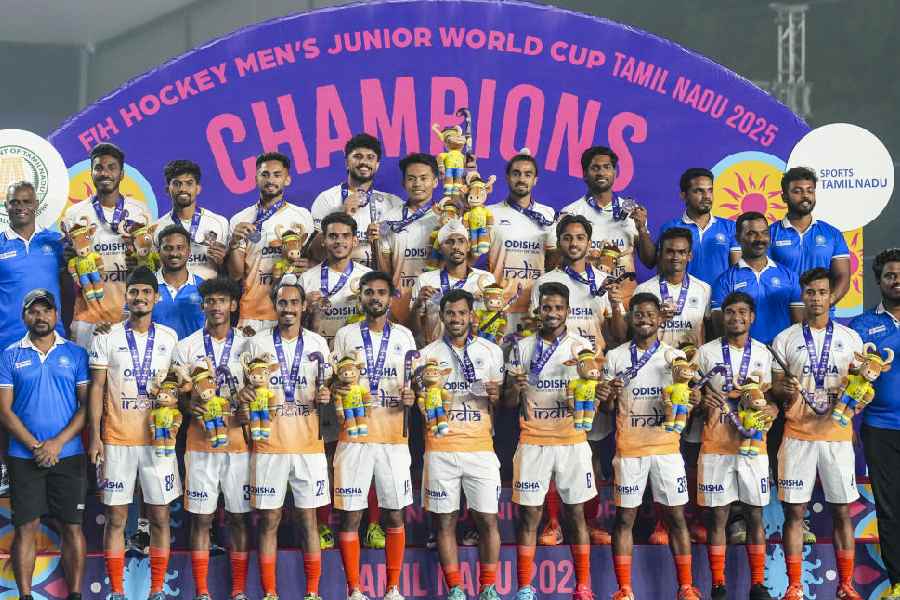 |
| Tiwari |
New Delhi, Oct. 14: Veteran Congress leader and four-time chief minister Narain Dutt Tiwari is battling a paternity suit filed by Rohit Shekhar, the 29-year-old grandson of a former Union minister.
The case is probably the first of its kind involving a prominent political figure in the country.
In his reply to a Delhi High Court notice, the octogenarian Tiwari, now Andhra Pradesh governor, has denied the allegation that he is Rohit’s father and refused to undergo a DNA test.
Tiwari has acknowledged his association with Rohit’s mother Ujjwala Sharma but challenged the petitioner on grounds of jurisdiction (of the court), “limitation” (Tiwari says Rohit should have filed the suit within three years of turning 18) and “cause of action” (Tiwari asks what grounds Rohit has to file the case now).
The case, admitted in April 2008 before Justice Reva Khettrapal, comes up for hearing next on November 25.
Rohit, a lawyer, has claimed that when he was 12-13, he came to know about his “natural” father and, since turning 18, has repeatedly sought and been denied his “status”.
He has offered to undergo a DNA test and sought a court direction to Tiwari to take a similar test, insisting that the “causing of action (his demand to be recognised as Tiwari’s son) is continuing till date, hence the suit”.
Documents in possession of The Telegraph suggest that Rohit has not sought any financial benefits. He wants Tiwari to acknowledge him as his son or undergo the DNA test.
Rohit’s grandfather Sher Singh, who was minister of state for defence in Indira Gandhi’s government, has written to Prime Minister Manmohan Singh, Sonia Gandhi and the entire Congress Working Committee accusing Tiwari of “avoiding responsibility towards his son”.
Tiwari was Indian Youth Congress president when he came in touch with Sher Singh in 1967. The following year, Ujjwala was appointed joint secretary in the women’s wing of the Youth Congress, then headed by Nandini Sathpathy.
Tiwari, in his reply to the court notice, has described Rohit’s mother as an “unchaste woman” and accused the petitioner of acting at her behest.
“She as an unchaste woman had defendant 1 (Tiwari) as her paramour even during the subsistence of her marriage...” Tiwari’s reply says.
According to Tiwari, Rohit was born while Ujjwala was married to B.P. Sharma and the legal presumption is that a child born to a married woman is the legitimate child of the husband.
Tiwari insists that there is no special statute or provision in the Criminal Procedure Code or the evidence act to empower courts to order DNA tests.
Citing previous cases, Tiwari says that if a party is unwilling to submit to a test, the court has no powers to direct it to submit itself to one.
“In the case Banarsi Das vs Teeku Dutta (2005) 4SCC449, the Supreme Court has observed that DNA test is not directed as a matter of routine,” Tiwari’s reply says. In another case, the apex court held that no person can be compelled to give a blood sample against his or her will.
Tiwari’s counsel has said that several years have passed since the petitioner turned major. The counsel has cited Article 137 of the Limitation Act, 1963, to say: “The period of limitation is founded as a public policy, its aim being to secure... quiet of the community and to suppress fraud and perjury. It has been said… that controversies are limited to a fixed period of time, lest they should be immortal while men are mortal.”
Questioning the court’s jurisdiction, Tiwari has asked why the case was filed in Delhi. He has said that as governor of Andhra Pradesh, he resides in Hyderabad, and claimed that Rohit was born in Lucknow. But Rohit’s birth certificate, which gives his year of birth as 1979, says he was born at the All India Institute of Medical Sciences, New Delhi.
Tiwari, a three-time chief minister of undivided Uttar Pradesh, served as chief minister of Uttarakhand between 2002 and 2007. He has held several portfolios at the Centre too, such as industry and finance.
Legal experts agree that a child born to a married woman is presumed to be the husband’s offspring, but say this presumption can be rebutted by evidence to the contrary. They, however, differ widely on when and under what circumstances this presumption can be set aside.
Many parents, or their offspring, today overtly or covertly seek help from forensic and private laboratories to conduct paternity tests. Suspected infidelity is not always the reason — some fear a baby swap.
A DNA test, which compares a child’s DNA pattern with the alleged father’s, costs around Rs 3,000. It can be done on blood, saliva or hair samples.











